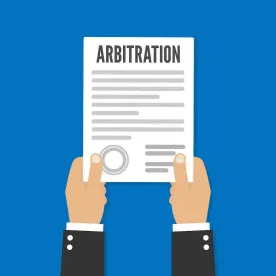The U.S. Supreme Court has given businesses with California employees the option (at least for now) to avoid employee-initiated court proceedings under California’s Private Attorneys General Act (PAGA). On June 15, 2022, the Supreme Court ruled in Viking River Cruises, Inc. v. Moriana that the Federal Arbitration Act (the “FAA”) preempts long-standing California precedent banning employers from mandating the arbitration of PAGA claims. The Court’s Viking River ruling means an employer with an FAA-governed arbitration agreement may compel arbitration of an employee’s individual PAGA claims which may—more significantly—essentially wipe out the employee’s class action-like representative PAGA claims.
What is a PAGA Claim?
PAGA is a unique California statute that allows an employee to stand in the shoes of the State of California as its representative and bring a lawsuit for violations of many California Labor Code provisions. Employees have the right to bring these claims on their own for their own alleged harms (individual claims) or they can choose to bring these claims on behalf of themselves and similarly situated employees (representative claims). As employers appreciate, litigating a case that potentially encompasses an entire California workforce presents significant challenges in its complexity, scope, business impact and, importantly, expense.
Arbitration Agreements and PAGA before Viking River—Iskanian
In 2014, the California Supreme Court held in Iskanian v. CLS Transportation Los Angeles, LLC that employers could not require employees to waive the right to bring representative PAGA actions in court or in arbitration. Moreover, Iskanian also struck down agreements that allowed the litigation of an employee’s individual PAGA claims separate from the employee’s representative claims. As a result, under Iskanian, arbitration agreements could not require waivers of PAGA representative actions or mandatory arbitration of an employee’s individual PAGA claims. The practical impact of these rules is that PAGA claims have become significant leverage against employers because of the expense of litigating representative claims in court. As Justice Alito, who wrote the opinion for the Viking River Court, observed, because of PAGA’s “additive dimension, low value claims may easily be welded together into high-value suits.”
Viking River’s Impact on Iskanian
Viking River guts part of the Iskanian rule – and arguably it does so for the rule that counts, at least for businesses with California employees. The Supreme Court held that the FAA preempts the Iskanian rule banning agreements that allowed PAGA actions to be divided into individual and representative claims. Although the Court held that the FAA does not preempt arbitration agreements with wholesale PAGA waivers (which remains a part of the Iskanian rule), the practical effect of FAA preemption means that an employer may enforce arbitration of an employee’s individual claims, and if the representative claims were brought by the same and only employee-plaintiff, the representative claims (and the accompanying potential liability) would essentially be extinguished—drastically reducing the action’s potential value, and potentially the motivation to bring it in the first instance.
Arbitration Agreements Must be Voluntary under AB 51
Despite Viking River’s pro-business impact, California employers (for now) must also keep another California statute in mind—AB 51 which prohibits mandatory arbitration agreements as a condition of employment. A legal challenge to that statute was mounted almost immediately after its enactment, but the Ninth Circuit recently vacated a January 2020 preliminary injunction that prohibited its enforcement. Until that case is resolved, AB 51 remains effective and all employment arbitration agreements must be voluntary to be enforceable.
Employer Takeaways
We recommend that businesses with California employees act quickly to benefit from the ruling in Viking River if they do not currently have arbitration agreements in place that are consistent with the ruling. Defending representative PAGA actions in court poses a significant expense and may disrupt day-to-day business operations. As a result, employers should consider:
-
Implementing FAA-governed arbitration agreements for employment claims;
-
Ensuring that all arbitration agreements are voluntary, not mandatory; and
-
Reviewing existing arbitration agreements to determine if they are consistent with Iskanian, Viking River and AB 51.





 />i
/>i
